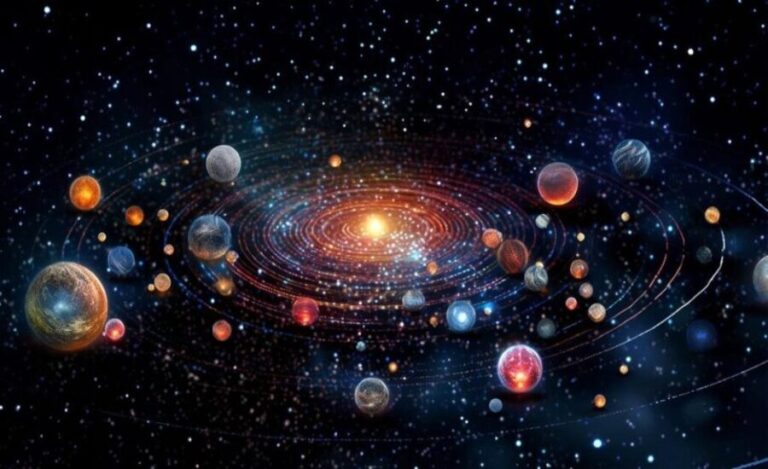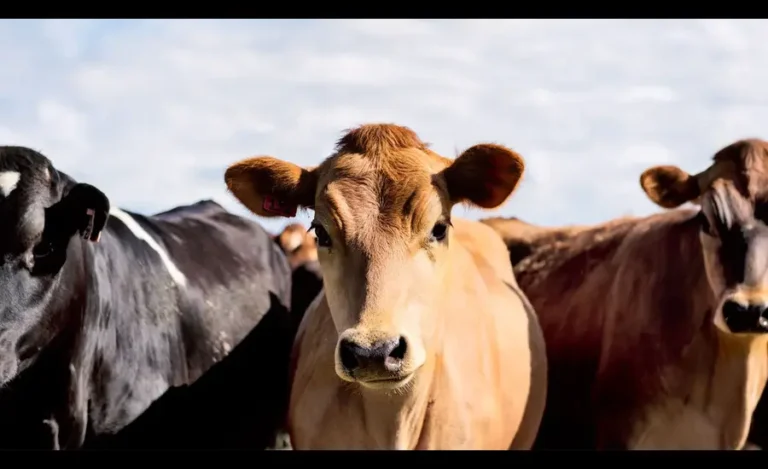The Influence of Venerated Celebrities: An Exploration
In modern society, celebrities wield a remarkable level of influence, extending their impact far beyond entertainment. Venerated celebrities, those who have achieved a status of reverence and admiration, shape cultural norms, drive trends, and even influence public opinion and societal values. Venerated celebrities hold a unique place in contemporary society. Their influence extends beyond entertainment, shaping cultural norms, driving trends, and impacting public opinion.
While their revered status brings significant power and responsibility, it also comes with challenges and criticisms. As the landscape of celebrity continues to evolve, the role and impact of these figures will undoubtedly continue to adapt, reflecting changes in technology, culture, and society. Understanding the dynamics of veneration helps us appreciate the profound effect celebrities have on our lives and the world around us.
Defining Venerated Celebrities
Venerated celebrities are individuals who, due to their exceptional achievements, charisma, or contributions to their field, command a high level of respect and admiration from the public. This reverence often extends beyond mere fan admiration to a form of societal sanctification. They are seen not only as entertainers but also as role models, thought leaders, and trendsetters. The term “venerated” implies a level of respect that borders on reverence, suggesting that these celebrities have transcended typical fame and entered a realm where their influence is profound and far-reaching.
Historical Context and Evolution
The concept of celebrity and veneration is not new. Historically, figures such as kings, religious leaders, and cultural icons have been revered and celebrated. For example, ancient Egyptian pharaohs were worshipped as living gods, and figures like Shakespeare were revered for their contributions to literature. However, the nature of celebrity has evolved significantly with the advent of mass media and digital technology.
In the 20th century, the rise of film, television, and later, the internet, democratized fame. Celebrities became household names, with their lives and work extensively covered by media outlets. The advent of social media further amplified their reach, allowing for a direct connection between celebrities and their audiences. This evolution has enabled celebrities to build and maintain their revered status in ways that were previously impossible.
The Mechanics of Veneration
Several factors contribute to the veneration of celebrities. These include:
Exceptional Talent and Achievement: Celebrities who excel in their fields, be it in acting, music, sports, or other areas, often achieve a level of reverence due to their extraordinary skills and accomplishments. For instance, athletes like Michael Jordan and musicians like Beyoncé are celebrated not only for their talent but also for their contributions to their respective industries.
Charisma and Personality: Charisma plays a crucial role in the veneration of celebrities. Individuals who exude charm, confidence, and authenticity often attract a loyal following. Charismatic leaders like Oprah Winfrey have built empires not just on their professional achievements but on their ability to connect with people on a personal level.
Social and Cultural Impact: Celebrities who influence societal norms and cultural trends often achieve a revered status. Figures like Malala Yousafzai, who advocates for girls’ education, or activists like Greta Thunberg, who addresses climate change, become symbols of broader social movements, gaining admiration and respect for their impact beyond their primary field.
Personal Branding and Image Management: In the age of social media, celebrities actively manage their public image. Through strategic branding and self-presentation, they craft a persona that resonates with their audience. This meticulous image management contributes to their revered status by ensuring that their public persona aligns with the values and aspirations of their followers.
The Impact of Venerated Celebrities
The influence of venerated celebrities extends into various aspects of society:
Shaping Trends and Consumer Behavior: Celebrities often drive trends in fashion, beauty, and lifestyle. Their endorsements can lead to significant shifts in consumer behavior, as fans and followers seek to emulate their style or purchase products they endorse. For example, a celebrity endorsement can turn a niche product into a best-seller overnight.
Influencing Public Opinion and Political Views: Celebrities have the power to shape public opinion and influence political views. Public figures like Leonardo DiCaprio, who advocates for environmental issues, or Kim Kardashian, who works on criminal justice reform, use their platforms to raise awareness and mobilize their audience around specific causes.
Providing Inspiration and Motivation: Many venerated celebrities serve as sources of inspiration and motivation. Their personal stories of overcoming adversity or achieving greatness resonate with individuals facing their challenges. For example, the rags-to-riches story of Oprah Winfrey inspires many to pursue their dreams despite obstacles.
Setting Social and Moral Standards: Celebrities often set social and moral standards through their actions and public statements. Their behavior can influence societal norms and expectations. For instance, the Me Too movement gained significant momentum with the support of high-profile celebrities, highlighting issues of sexual harassment and misconduct.
Criticisms and Controversies
Despite their revered status, celebrities are not immune to criticism and controversy. Their actions and statements are often scrutinized, and their influence can sometimes have negative consequences:
Unfulfilled Expectations: The high expectations placed on celebrities can lead to disappointment when they fail to meet them. Personal scandals or failures can tarnish their image and lead to a loss of reverence. For instance, celebrities involved in legal troubles or unethical behavior often face public backlash.
Perpetuation of Unrealistic Standards: The glamorous lifestyles and idealized images presented by celebrities can perpetuate unrealistic standards of beauty, success, and happiness. This can lead to issues such as body dissatisfaction and mental health struggles among fans who compare themselves to these idealized images.
Political and Social Missteps: When celebrities engage in political or social commentary, their opinions are not always well-received. Controversial statements or actions can lead to backlash and criticism, highlighting the risks associated with their influential status. For example, celebrities who make polarizing political statements can face significant public and media scrutiny.
The Future of Venerated Celebrities
As technology continues to evolve, the nature of celebrity and veneration is likely to change. The rise of digital platforms and virtual reality may create new forms of celebrity and influence. For instance, virtual influencers and digital avatars are already gaining popularity, blurring the lines between reality and digital creation.
The increasing interactivity of social media may also shift the dynamics of celebrity influence. Fans now have unprecedented access to celebrities, and the nature of their interactions can impact the perception and reverence of these figures. The future will likely see a continued evolution of celebrity culture, with new forms of veneration emerging alongside traditional ones.
Case Studies of Venerated Celebrities
To further understand the dynamics of venerated celebrities, examining specific case studies can provide valuable insights into how their influence manifests and shapes various aspects of society.
Nelson Mandela
Nelson Mandela is a prime example of a venerated figure whose influence extended far beyond his initial field of activism. As a leader in the fight against apartheid in South Africa, Mandela became a global symbol of resistance and reconciliation. His personal sacrifice, resilience, and commitment to justice earned him worldwide admiration and respect.
Oprah Winfrey
Oprah Winfrey’s impact as a media mogul and philanthropist demonstrates the power of celebrity to shape societal values. Her television show, “The Oprah Winfrey Show,” became a platform for discussing important social issues and personal development. Winfrey’s emphasis on self-improvement, emotional well-being, and social justice has had a profound effect on American culture. Her philanthropic efforts, including the establishment of the Oprah Winfrey Foundation and the Oprah Winfrey Operating Foundation.
Elon Musk
Elon Musk represents a modern form of veneration in the tech industry. As the CEO of Tesla and SpaceX, Musk is admired for his visionary approach to technology and space exploration. His ambitious goals, such as colonizing Mars and advancing renewable energy, have garnered significant attention and respect. Musk’s influence extends into various sectors, including automotive technology, aerospace, and sustainable energy. His ability to innovate and push boundaries has made him a revered figure in the business and technology communities.
Malala Yousafzai
Malala Yousafzai’s story is a powerful example of how a venerated celebrity can impact global issues. After surviving a Taliban assassination attempt for advocating girls’ education in Pakistan, Yousafzai became an international symbol of courage and resilience. Her activism and advocacy for education have earned her global recognition, including the Nobel Peace Prize. Yousafzai’s influence extends to global educational policies and gender equality, demonstrating how a single individual’s commitment to a cause can drive significant change on a global scale.
The Role of Social Media in Modern Veneration
Social media has transformed the landscape of celebrity culture, playing a crucial role in the veneration of celebrities:
Direct Engagement with Audiences: Platforms like Instagram, Twitter, and TikTok allow celebrities to engage directly with their fans. This direct communication fosters a sense of closeness and personal connection, enhancing their revered status. Celebrities can share personal insights, promote their causes, and interact with followers in real-time, creating a more intimate relationship with their audience.
Viral Trends and Movements: Social media has the power to amplify trends and movements associated with celebrities. When a celebrity endorses a cause or participates in a social movement, it can quickly gain traction and reach a global audience. For example, the #MeToo movement gained momentum on social media, partly due to the support of high-profile celebrities who used their platforms to advocate for change.
Brand Building and Influence: Social media enables celebrities to build and maintain their personal brands more effectively. Through curated content and strategic engagement, celebrities can shape their public image and influence perceptions. This branding extends beyond traditional media and allows celebrities to control their narrative and expand their influence.
Challenges and Risks: While social media offers opportunities for veneration, it also presents challenges. The instant and public nature of social media can lead to rapid spread of controversies and backlash. Celebrities must navigate the complexities of online engagement, including managing negative comments, misinformation, and privacy concerns.
The Psychological and Sociological Implications
The influence of venerated celebrities has various psychological and sociological implications:
Impact on Self-Image and Identity: The portrayal of idealized lifestyles and physical appearances by celebrities can affect individuals’ self-image and identity. Fans may compare themselves to these idealized figures, leading to issues such as body dissatisfaction and low self-esteem.
Formation of Social Groups and Communities: Celebrities often serve as focal points for social groups and communities. Fan clubs, online forums, and social media groups centered around celebrities create spaces for individuals to connect and share common interests.
Influence on Behavior and Decision-Making: Celebrities can influence behavior and decision-making through their endorsements and public statements. Fans may alter their purchasing habits, lifestyle choices, or political opinions based on the guidance or example set by their favorite celebrities. This influence underscores the power of celebrity to shape societal trends and personal decisions.
Ethical Considerations and Responsibilities
The veneration of celebrities comes with ethical considerations and responsibilities:
Ethical Role Modeling: Venerated celebrities have a responsibility to act as ethical role models. Their behavior and public statements can set precedents for their followers. The ethical conduct of celebrities is crucial in maintaining their revered status and ensuring that their influence is positive.
Transparency and Authenticity: The authenticity of celebrities’ public personas is an important factor in their veneration. Fans value transparency and genuine representation from celebrities. The creation of inauthentic or misleading public images can erode trust and diminish the revered status of celebrities.
Social Responsibility: Celebrities have the power to influence social and political issues. They can use their platforms to advocate for important causes and contribute to social change. The responsible use of their influence involves addressing issues with sensitivity and contributing to positive societal outcomes.
Navigating Controversies: When faced with controversies or criticism, celebrities must navigate these challenges with integrity and accountability. Addressing issues transparently and responsibly is essential for maintaining public trust and preserving their revered status.
Conclusion
Venerated celebrities hold a complex and influential role in contemporary society. Their impact extends beyond entertainment, shaping cultural norms, driving trends, and influencing public opinion. While their revered status brings significant power and responsibility, it also comes with challenges and ethical considerations. The evolving nature of celebrity culture, driven by technological advancements and changing societal values, continues to shape the influence of these figures. Understanding the dynamics of veneration helps us appreciate the profound effect celebrities have on our lives and the world around us, as well as the responsibilities that come with their influential status.





